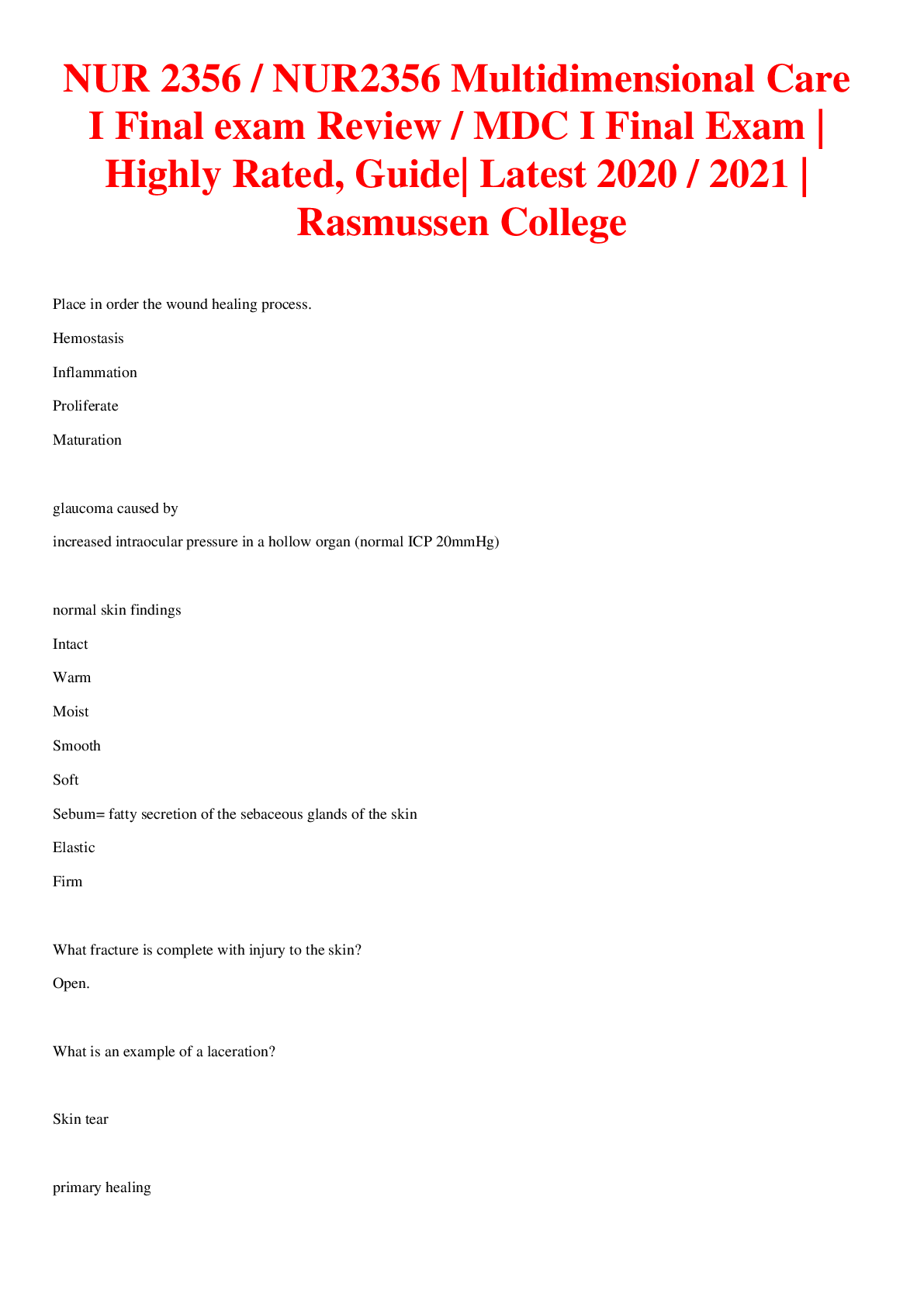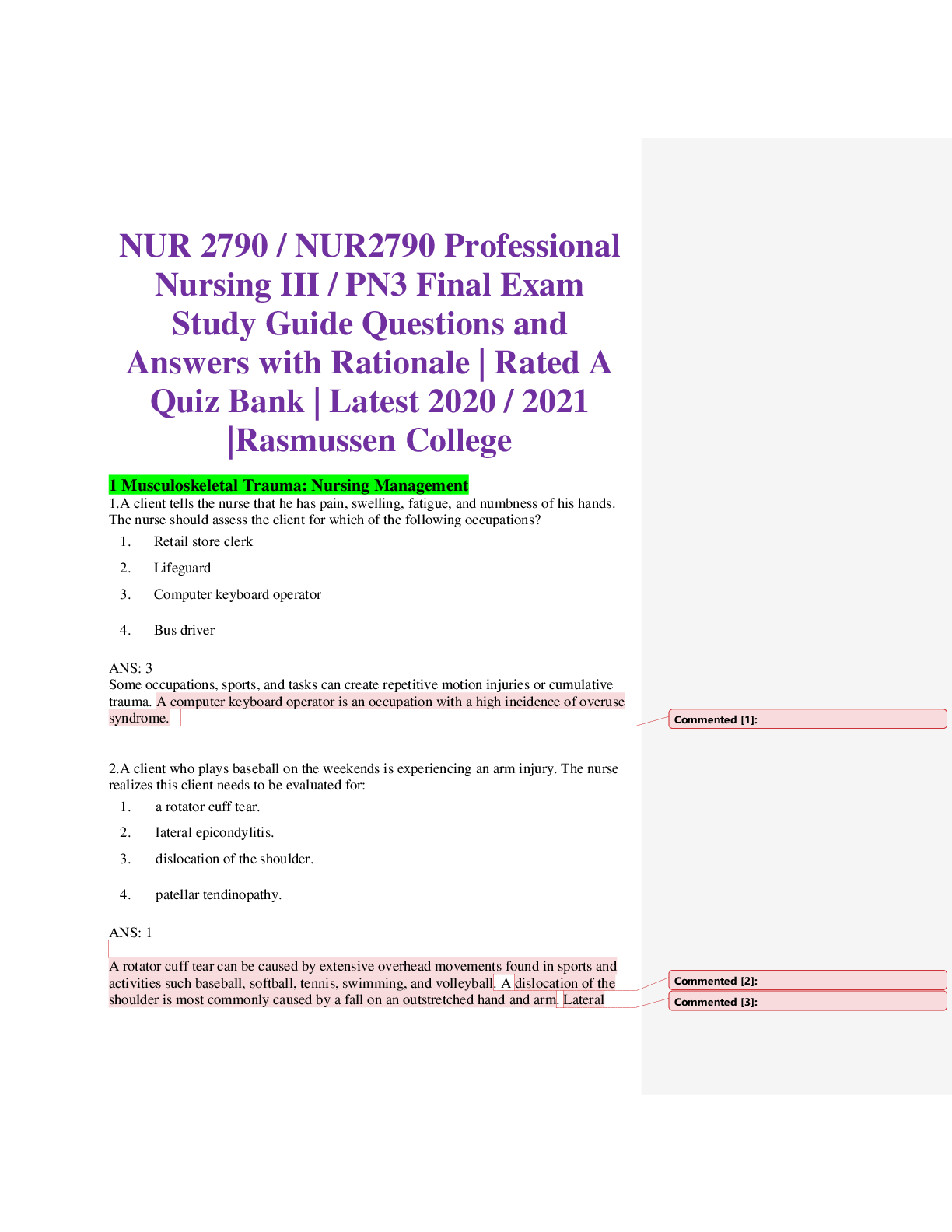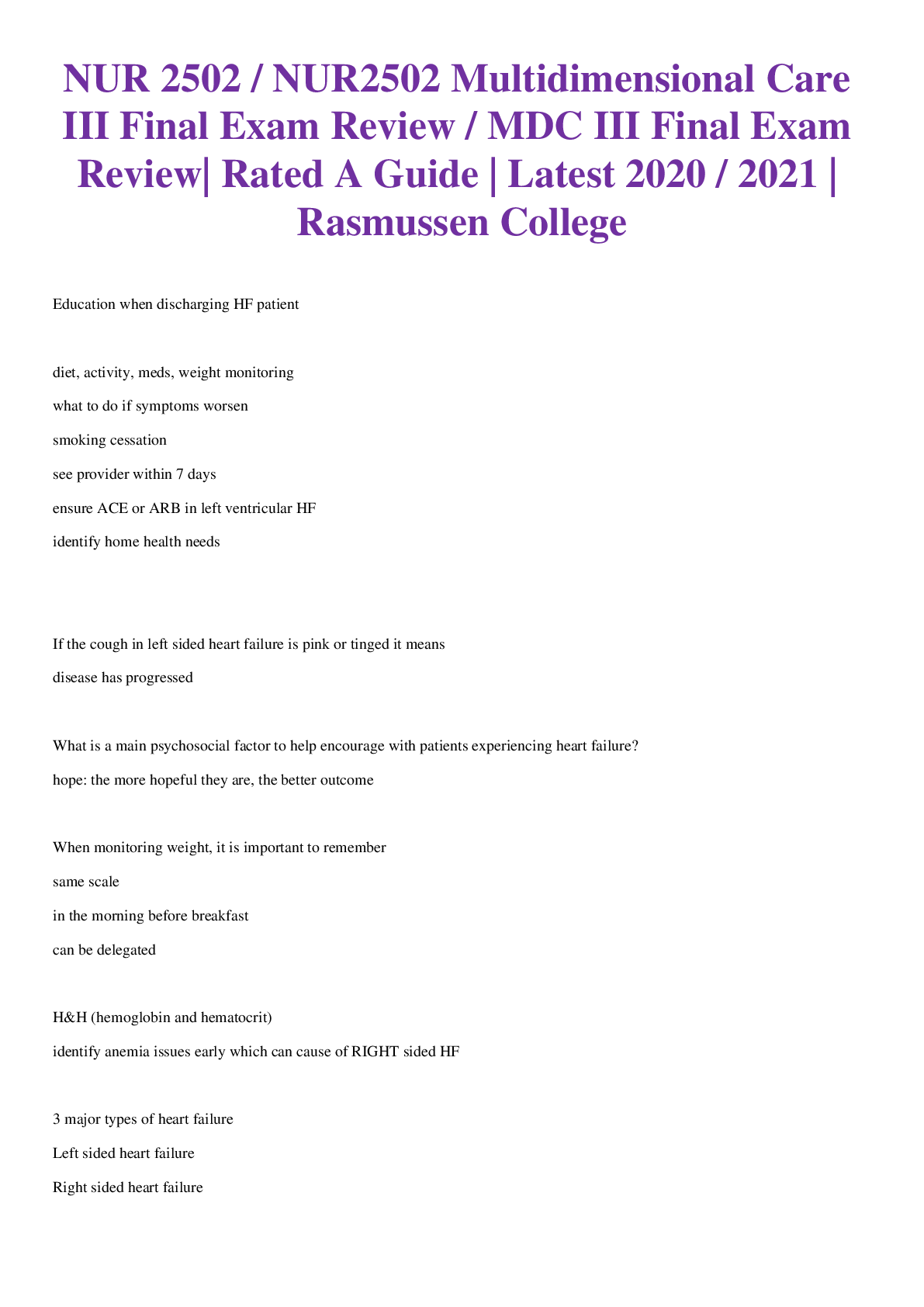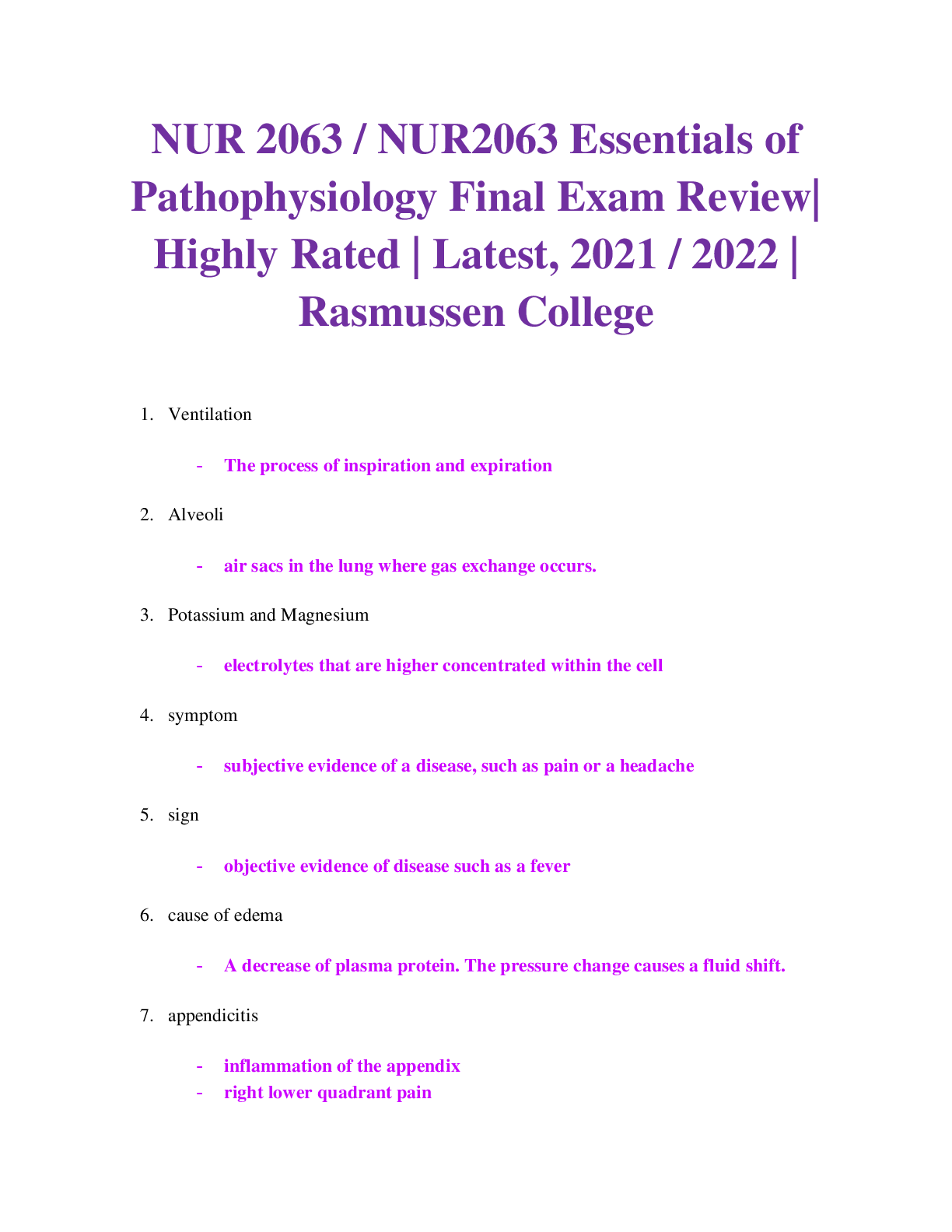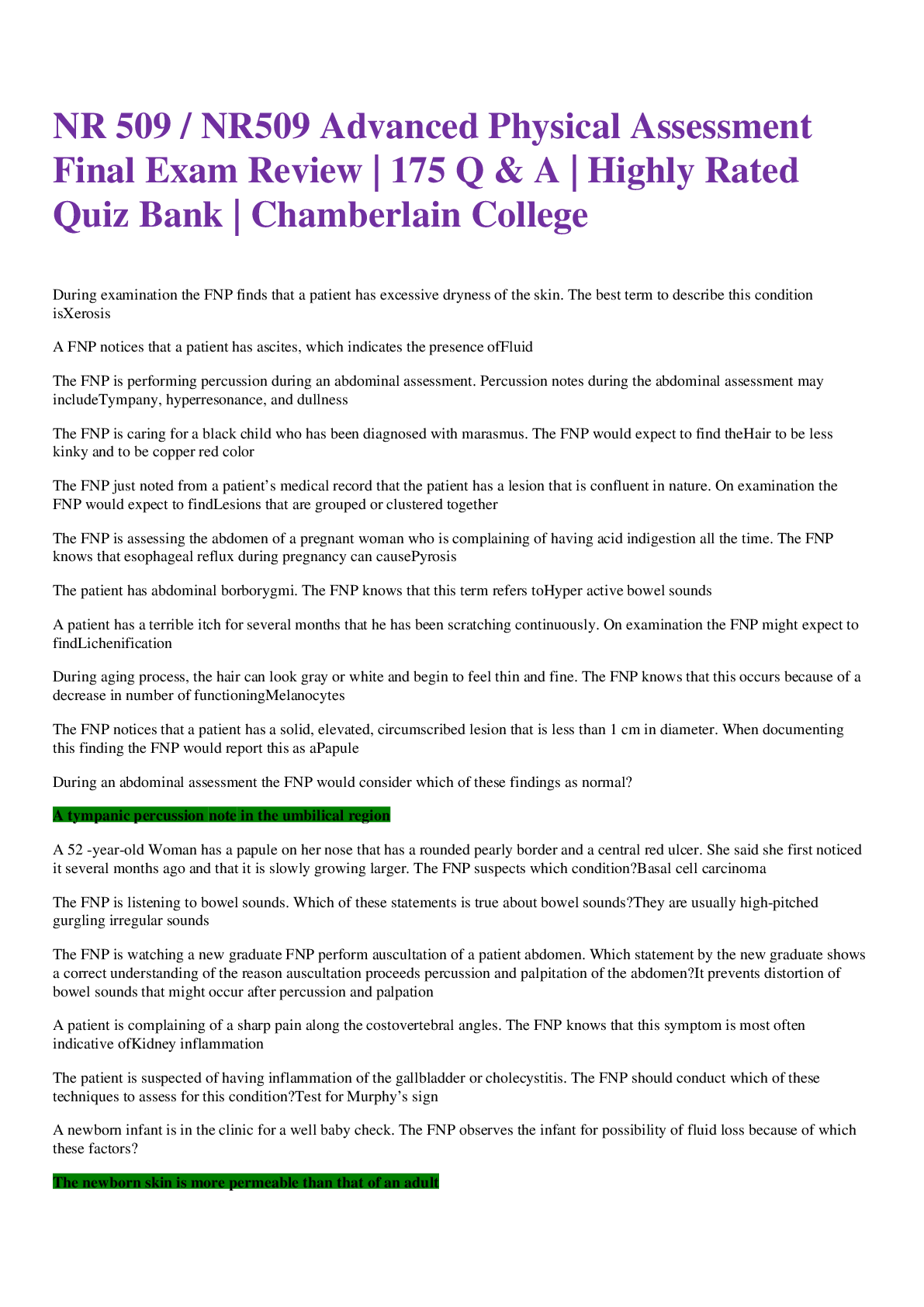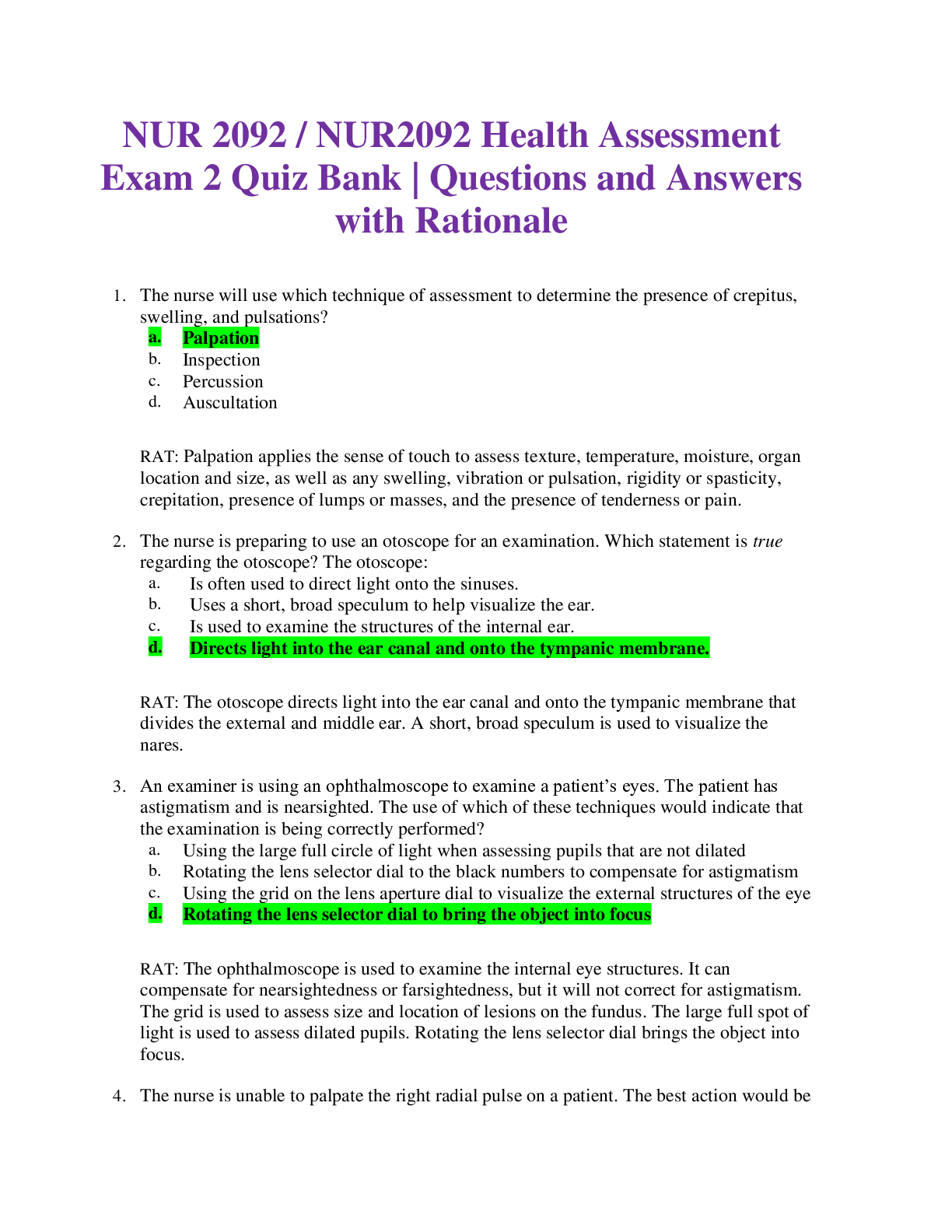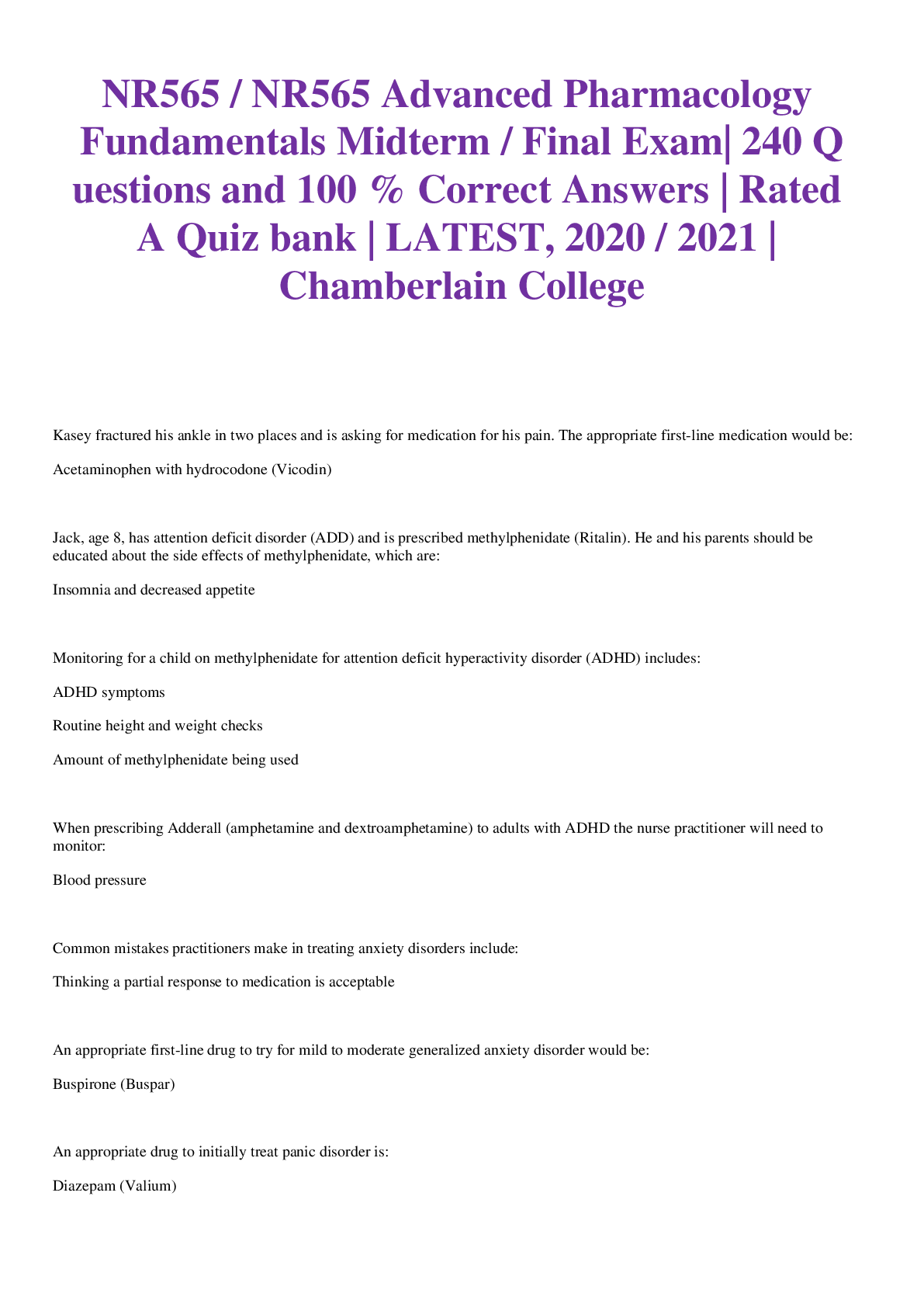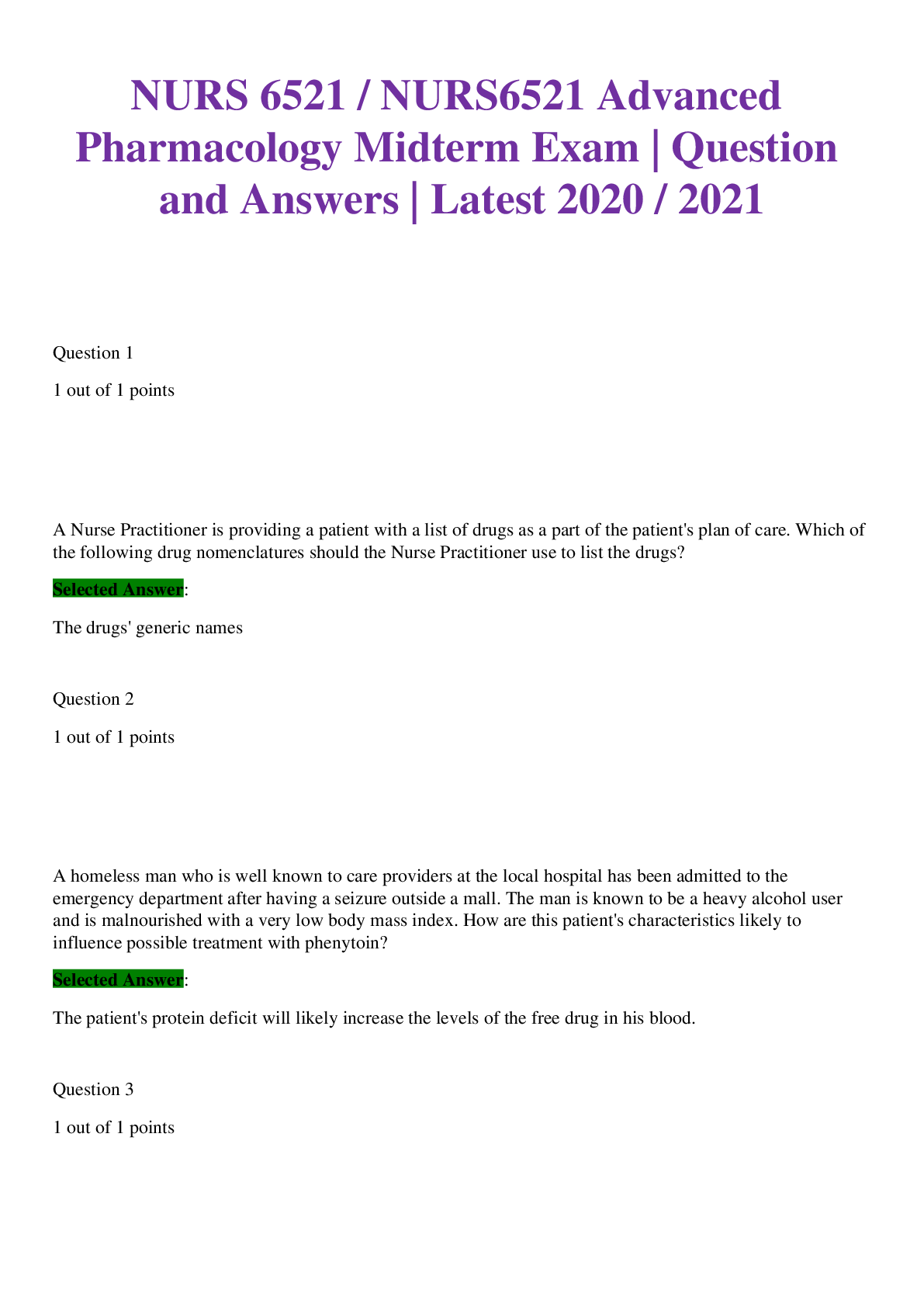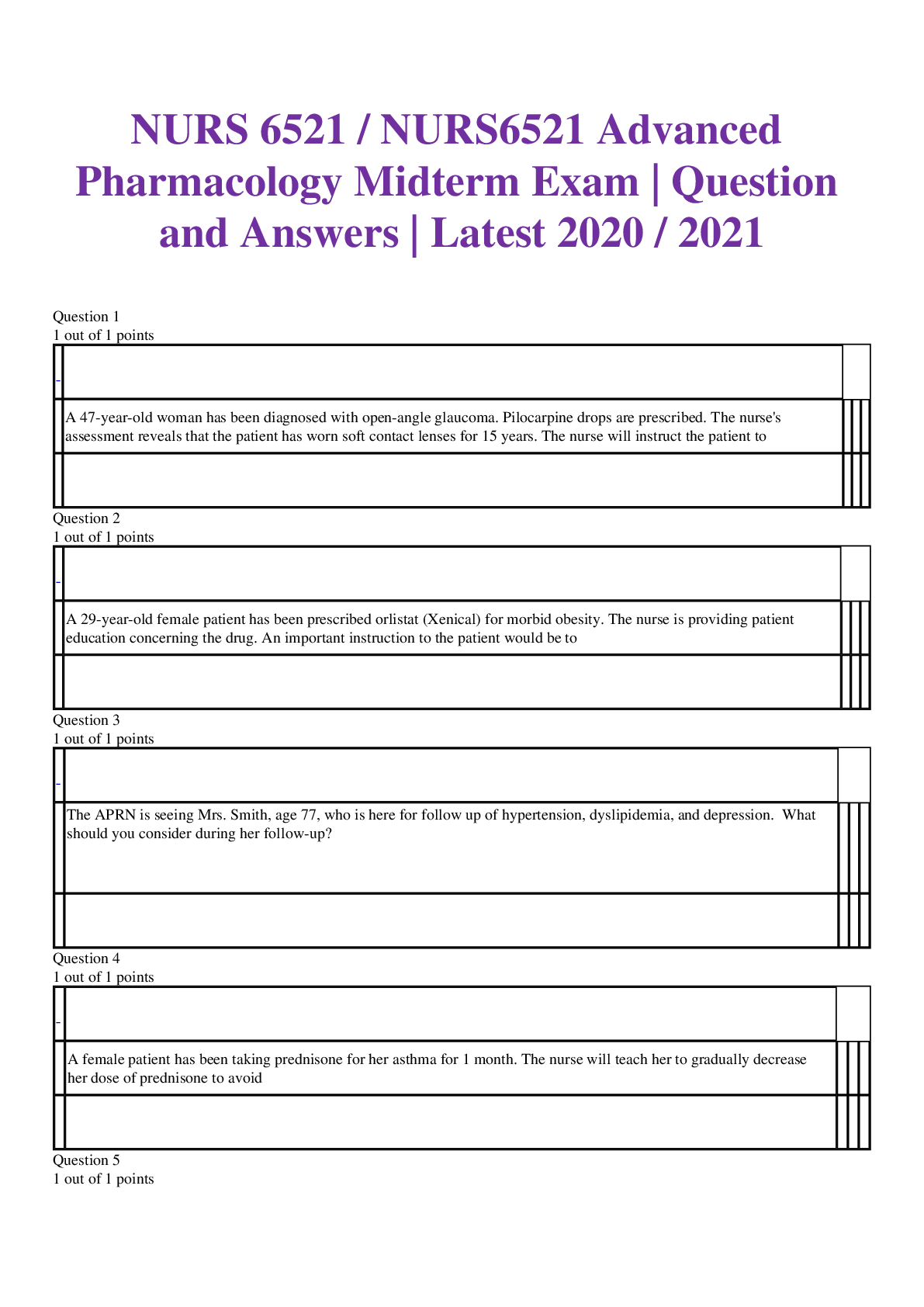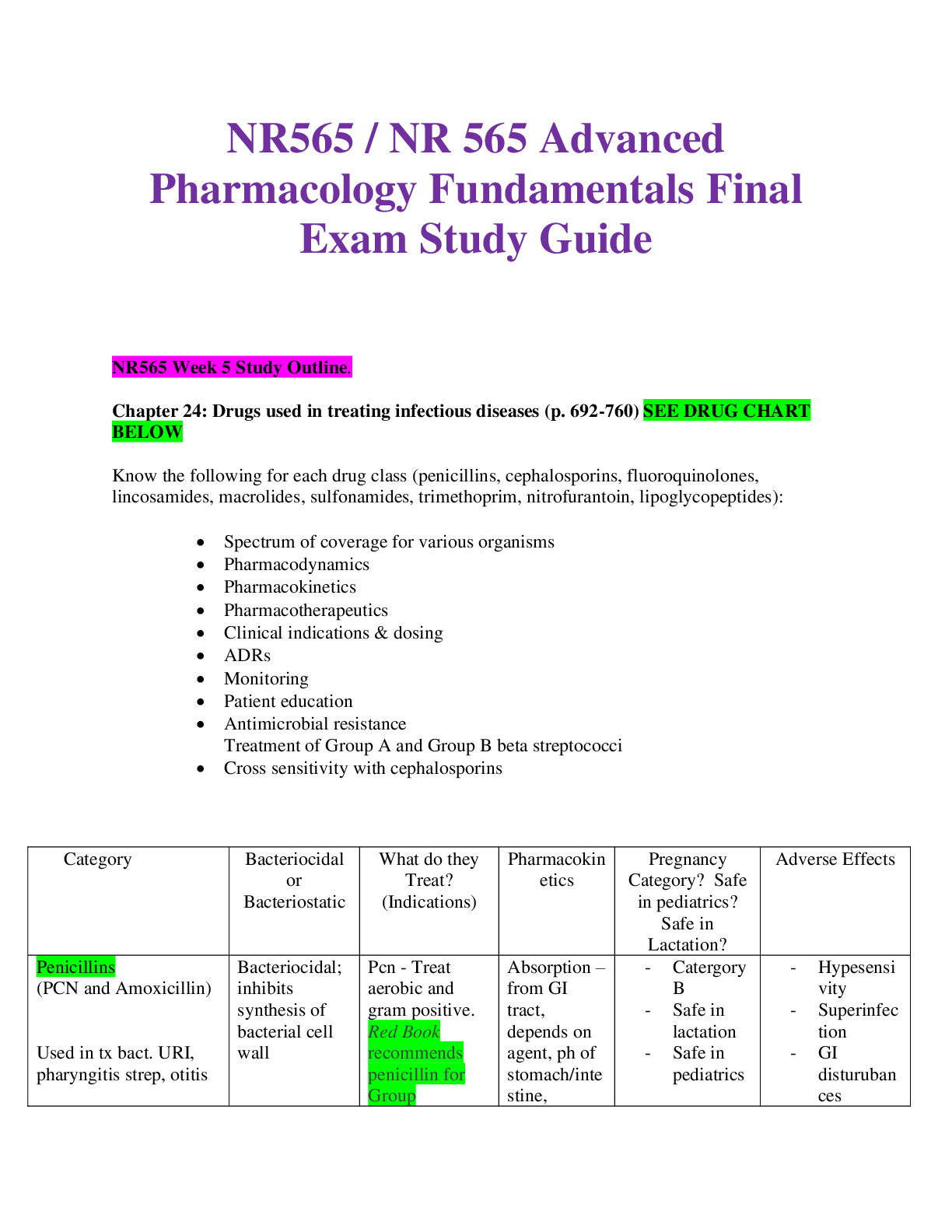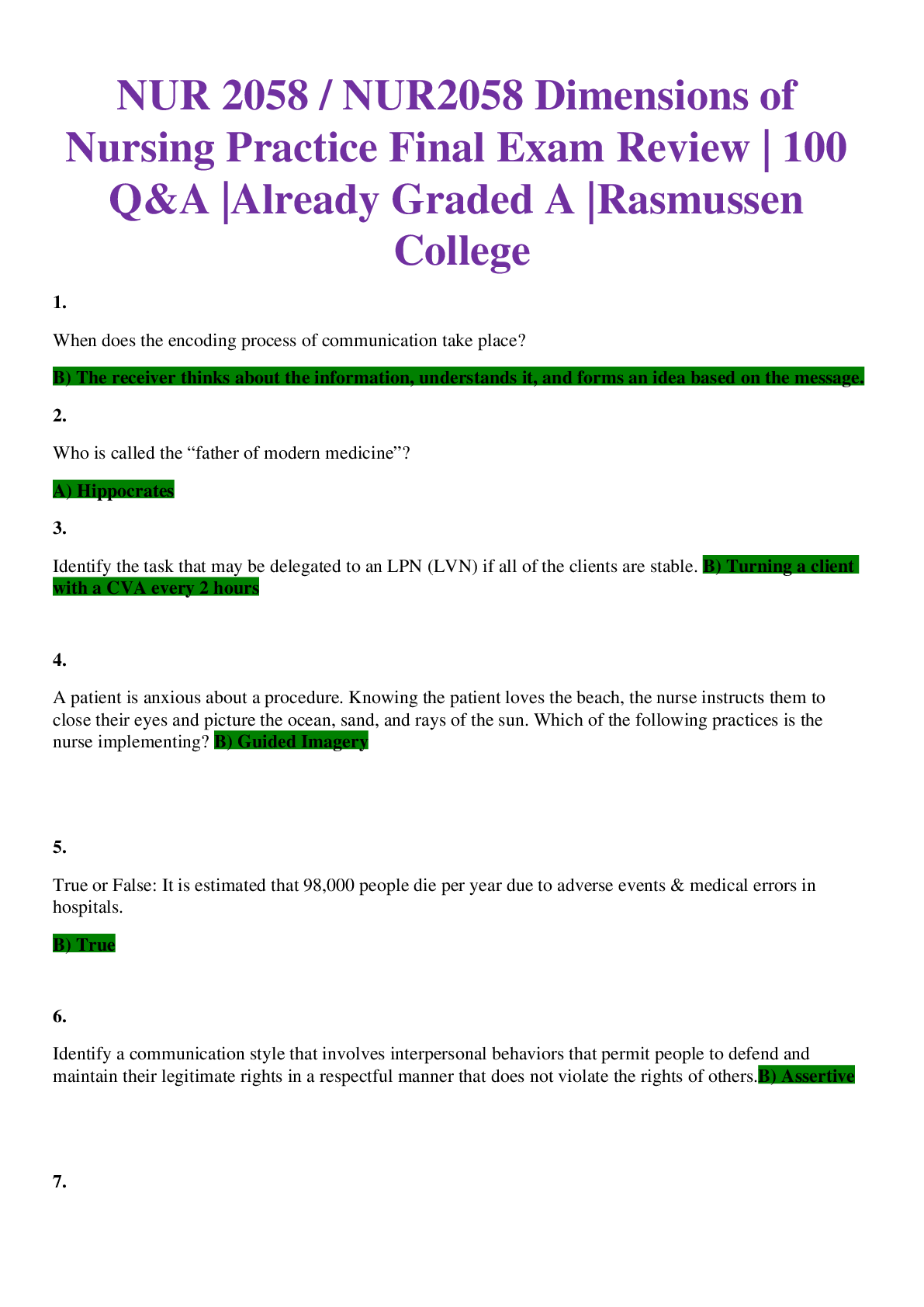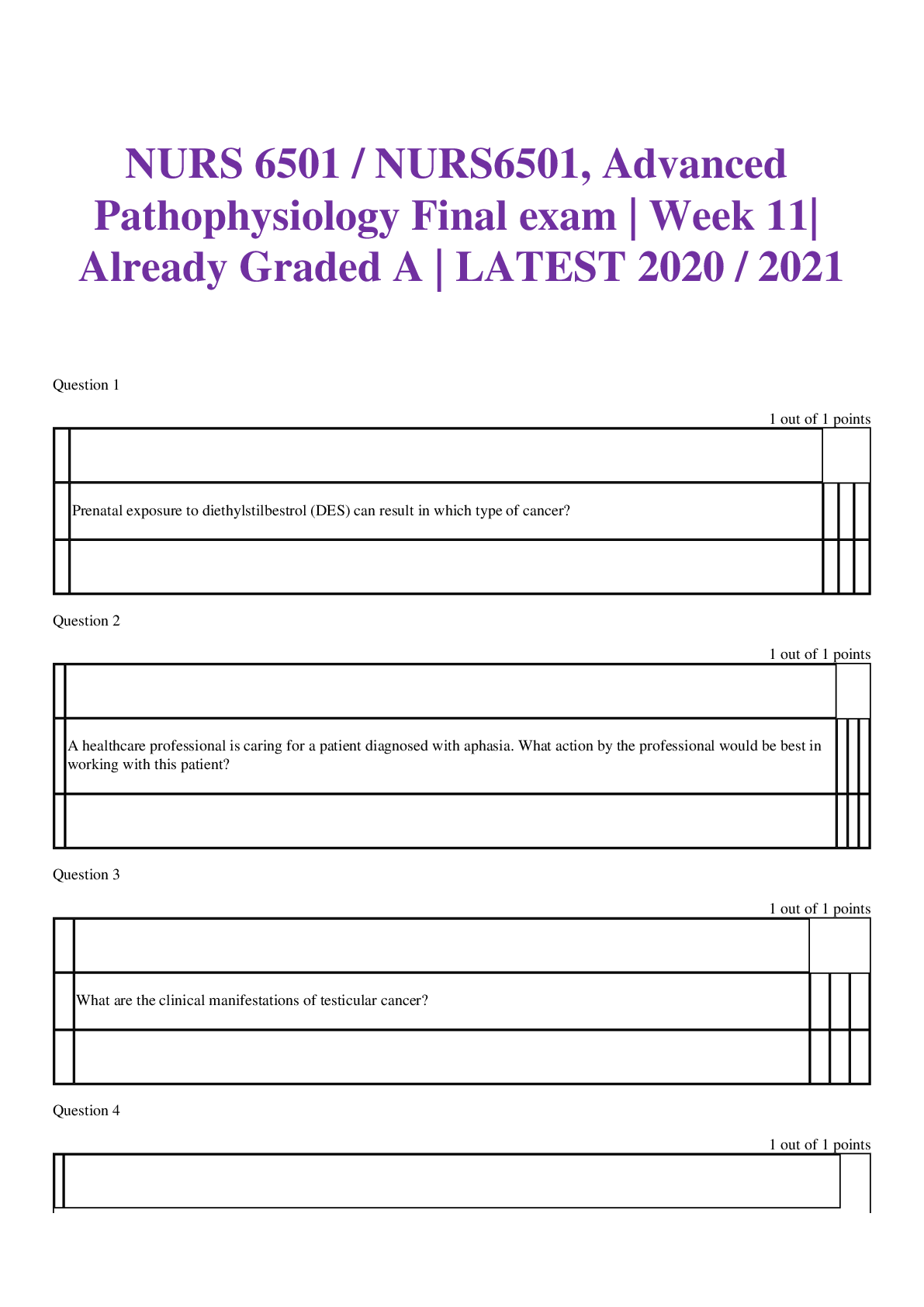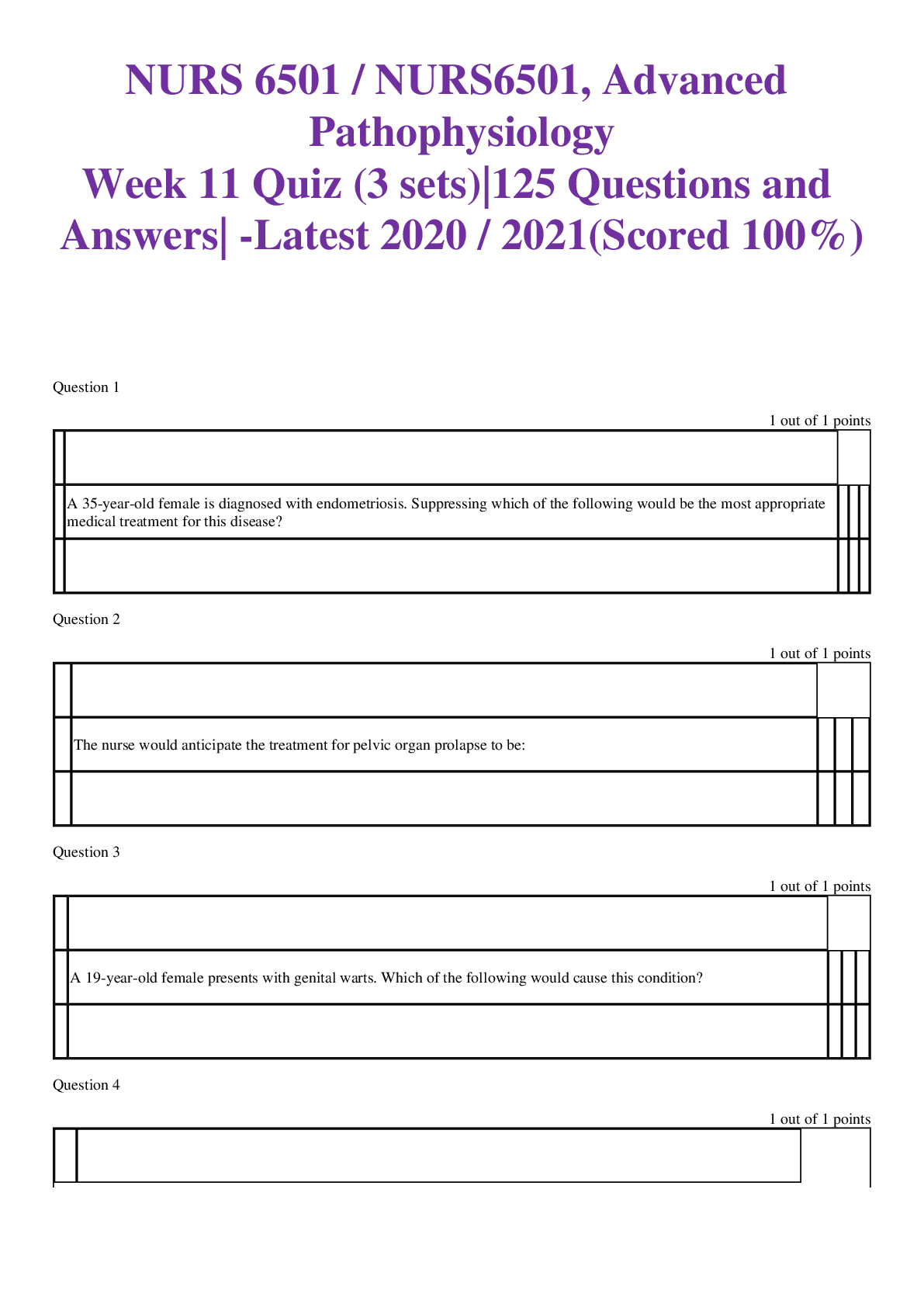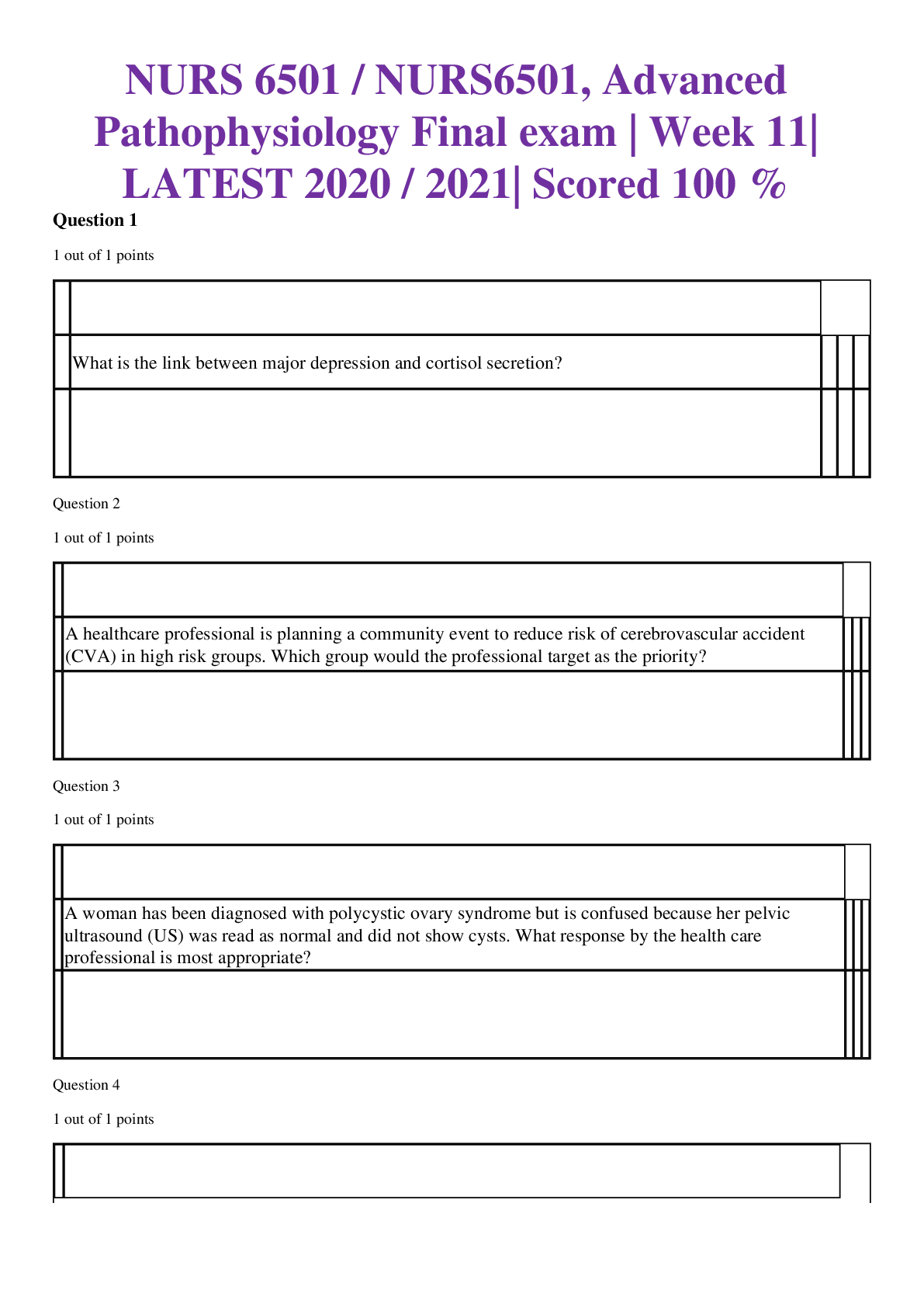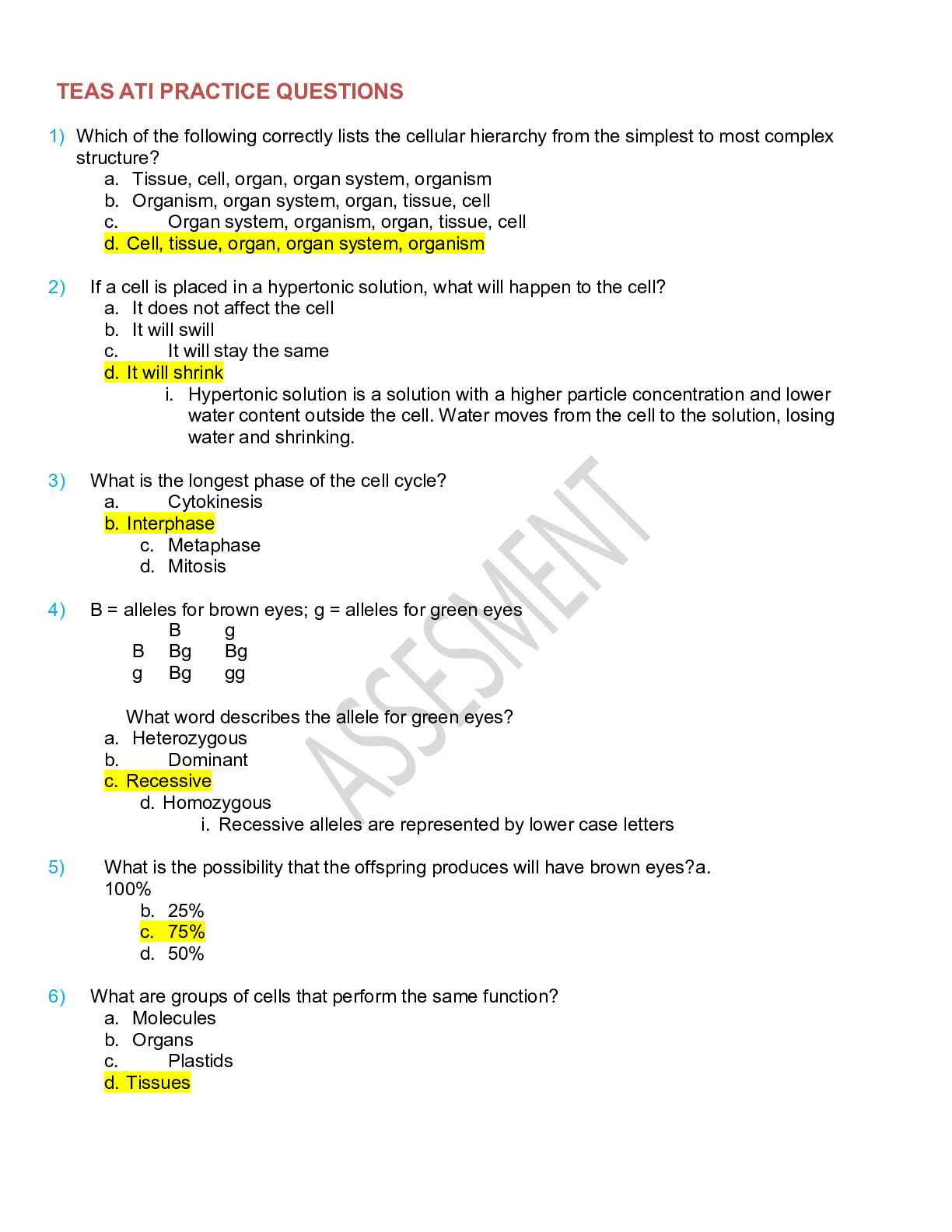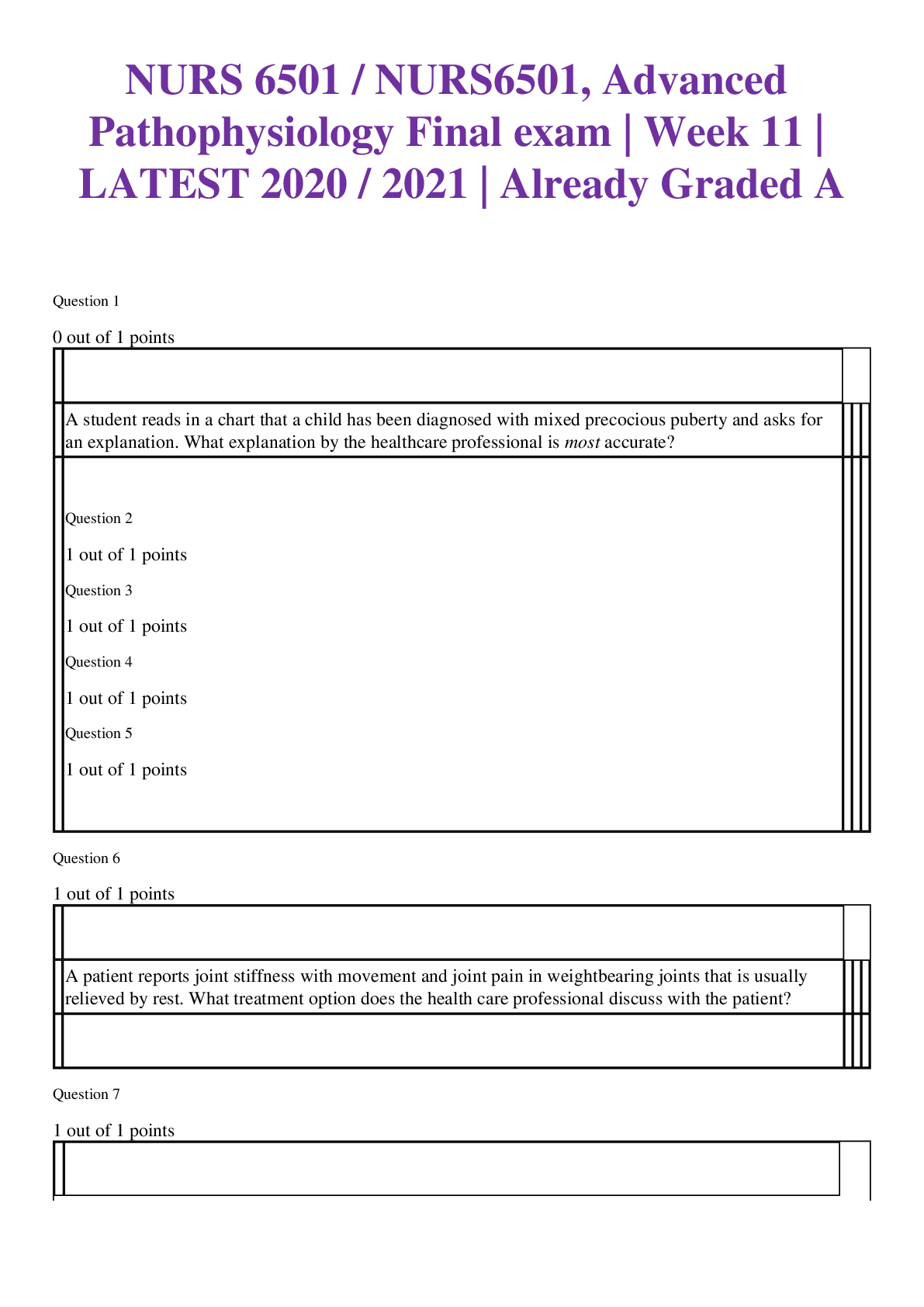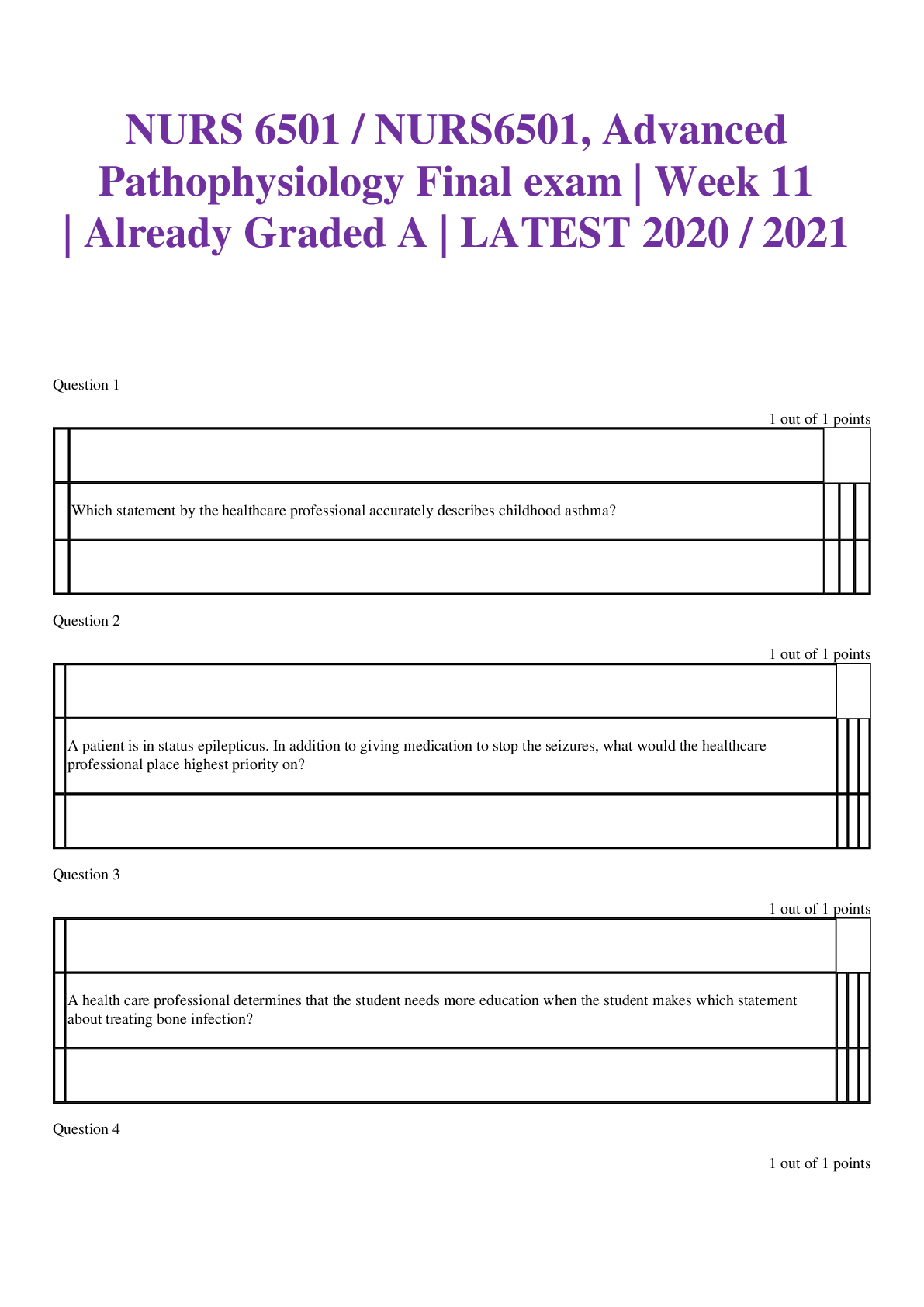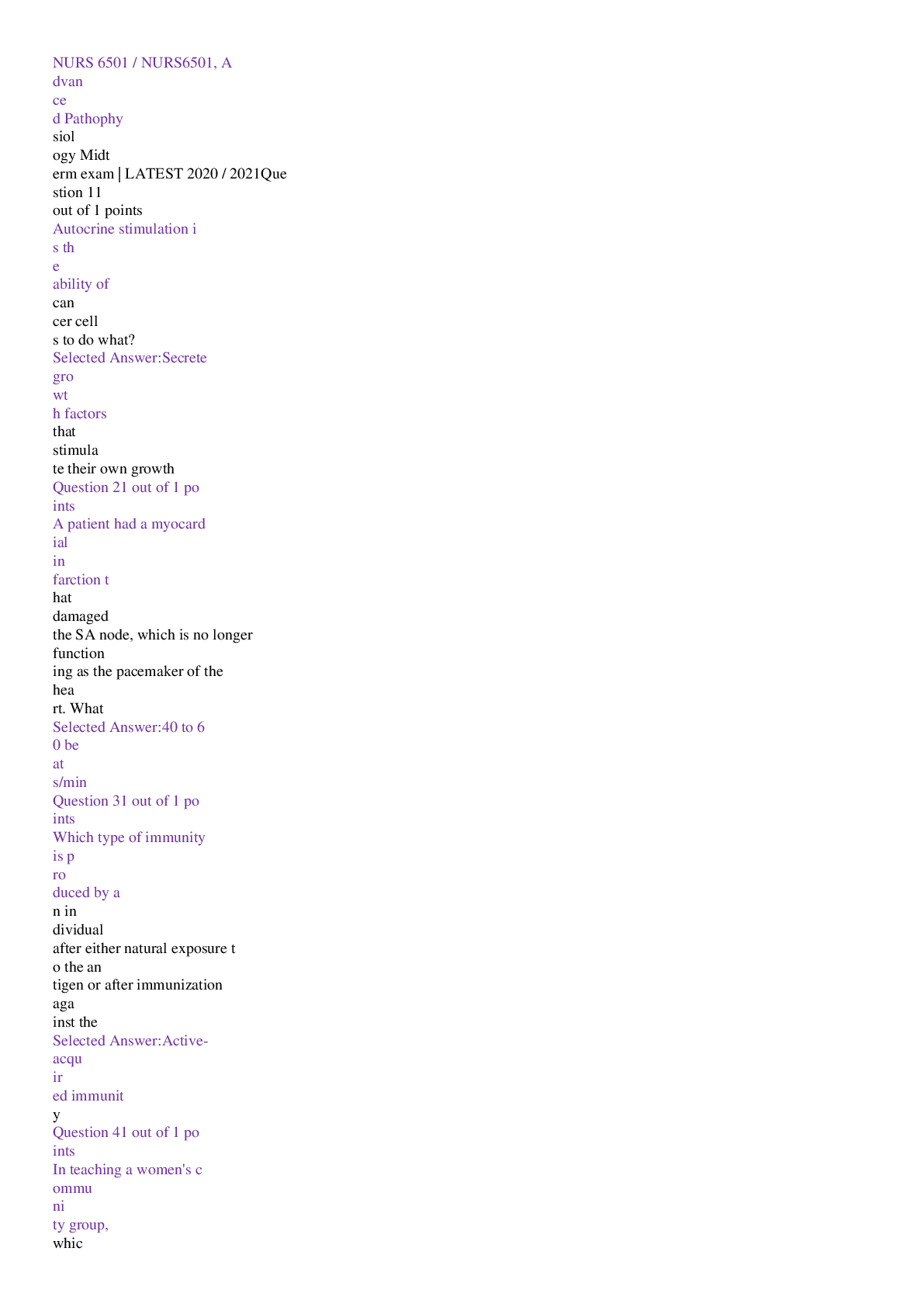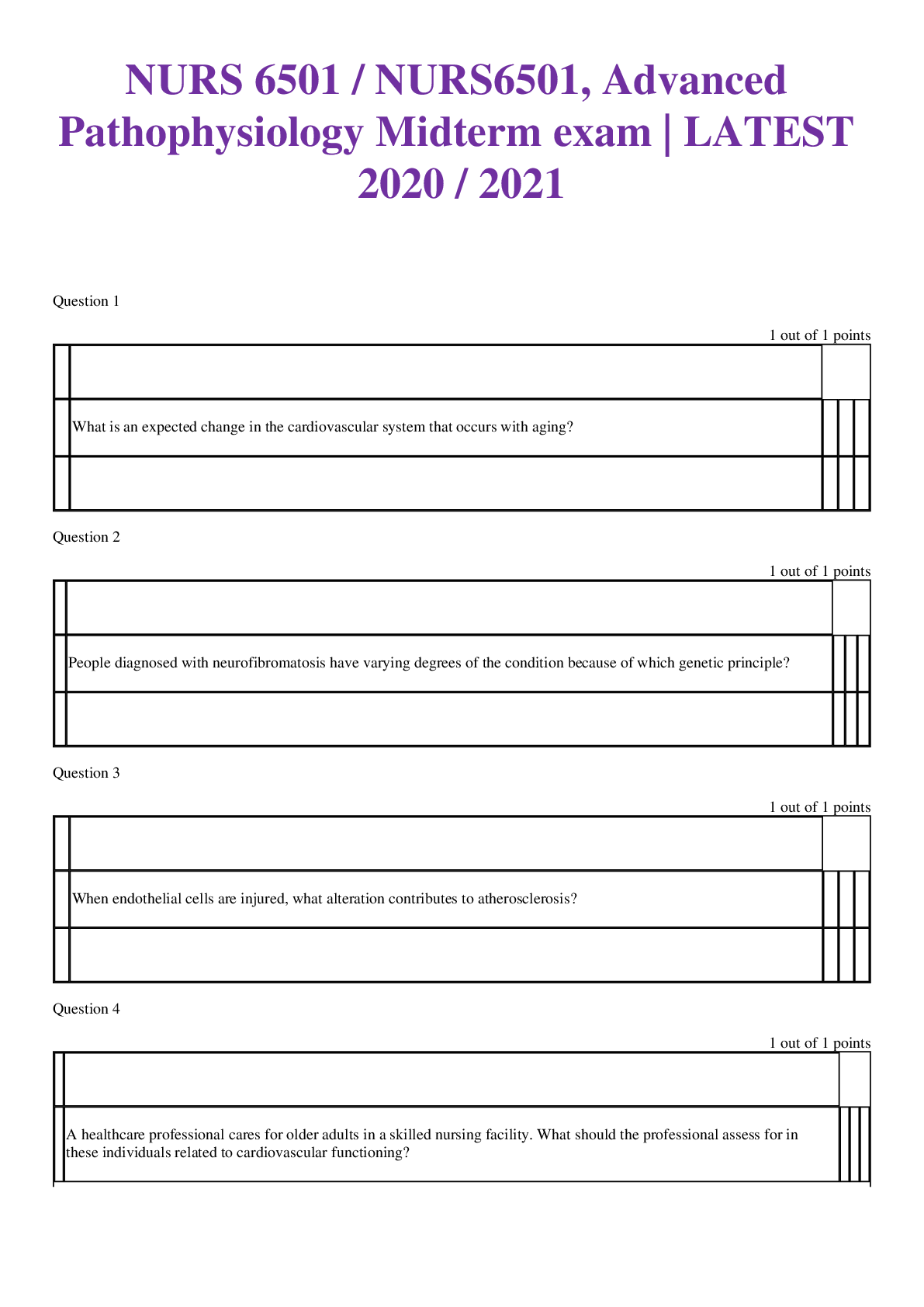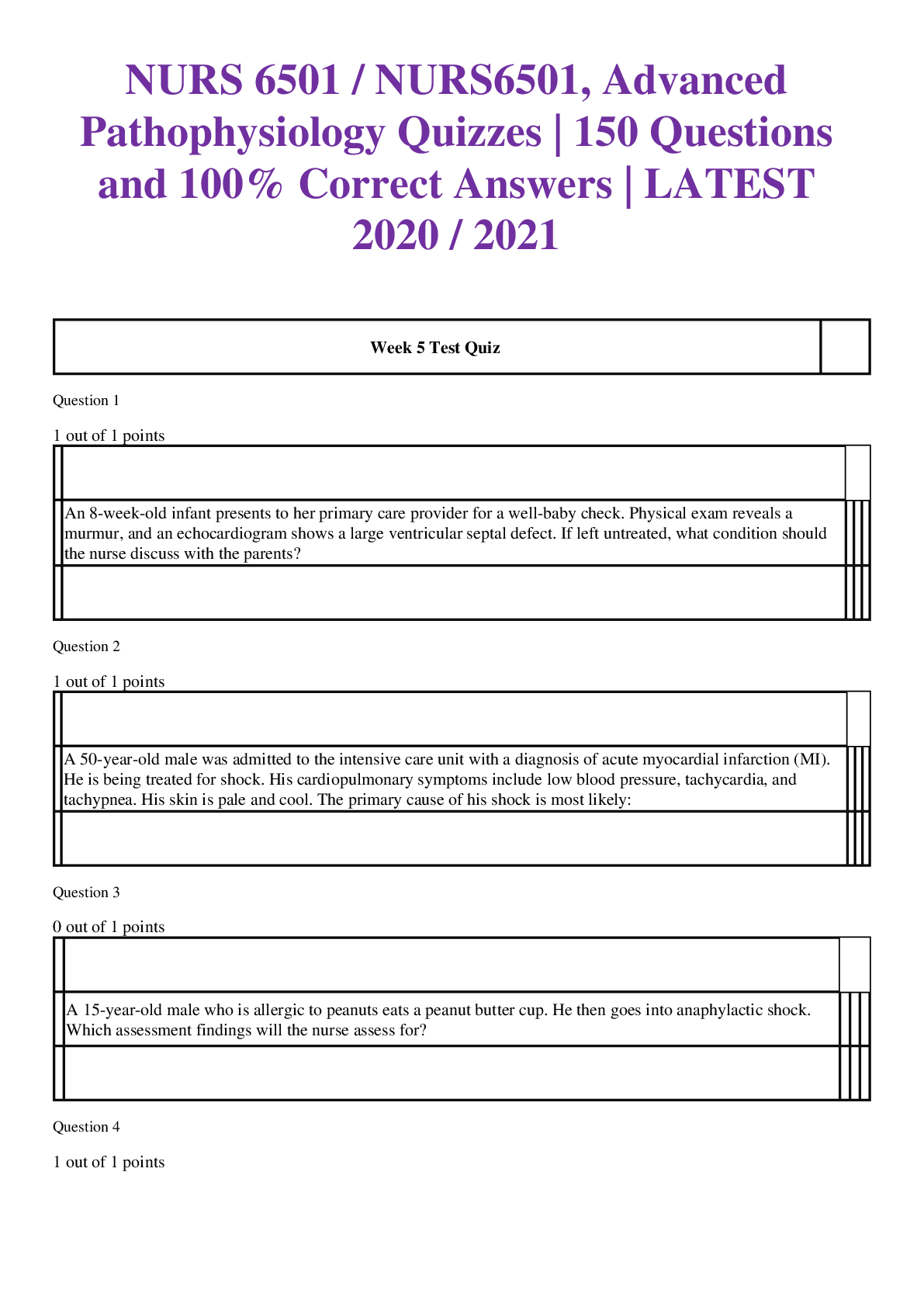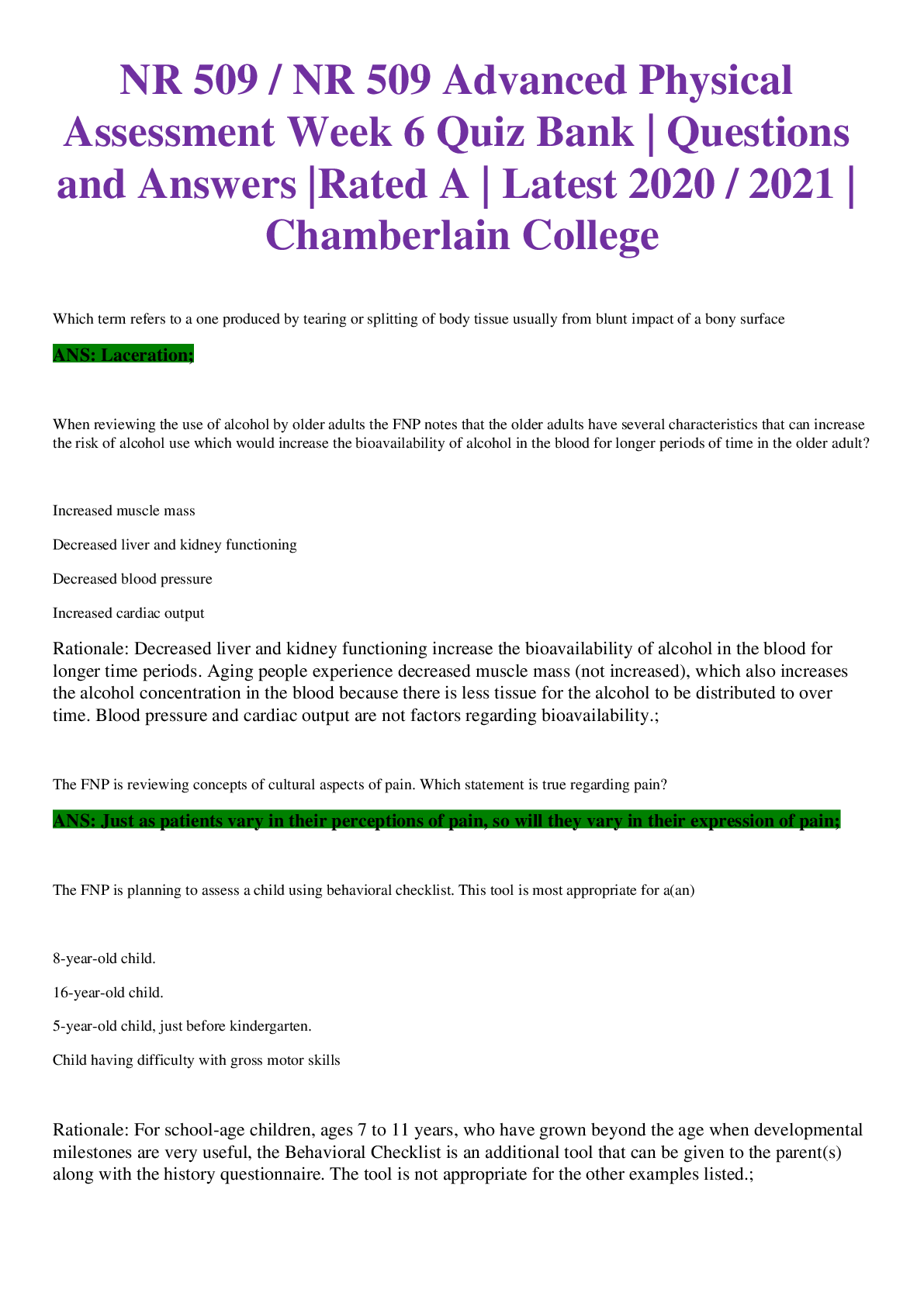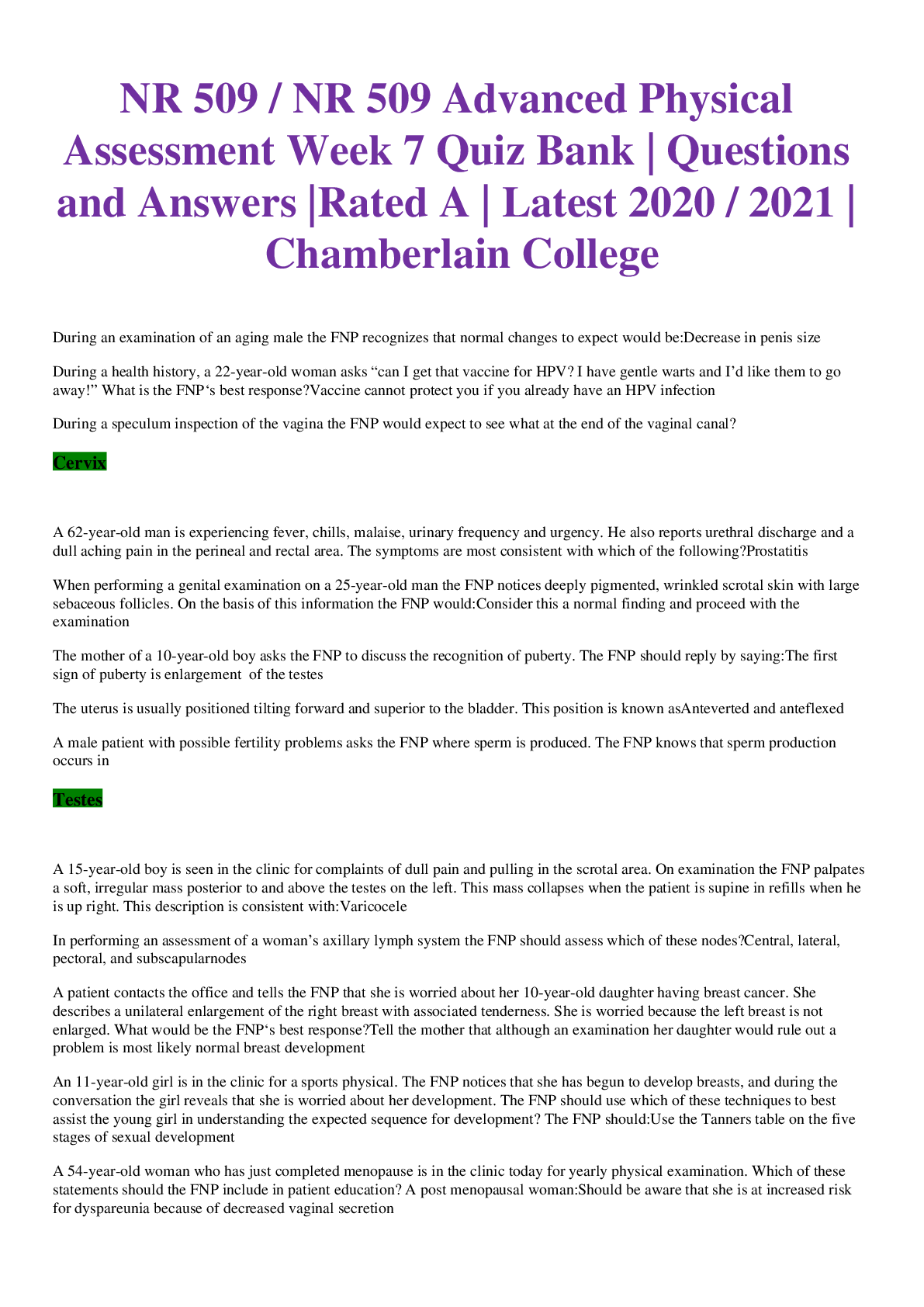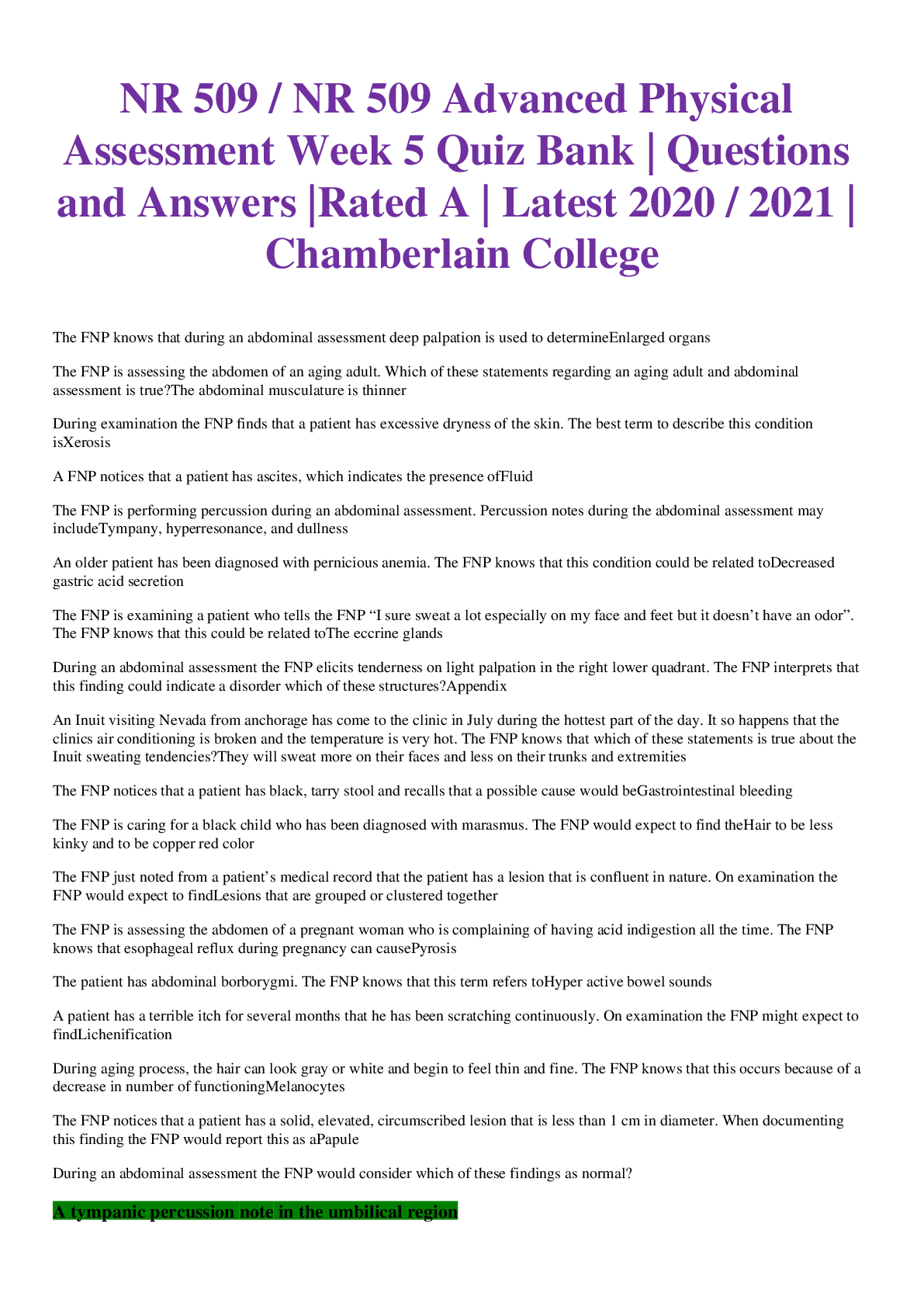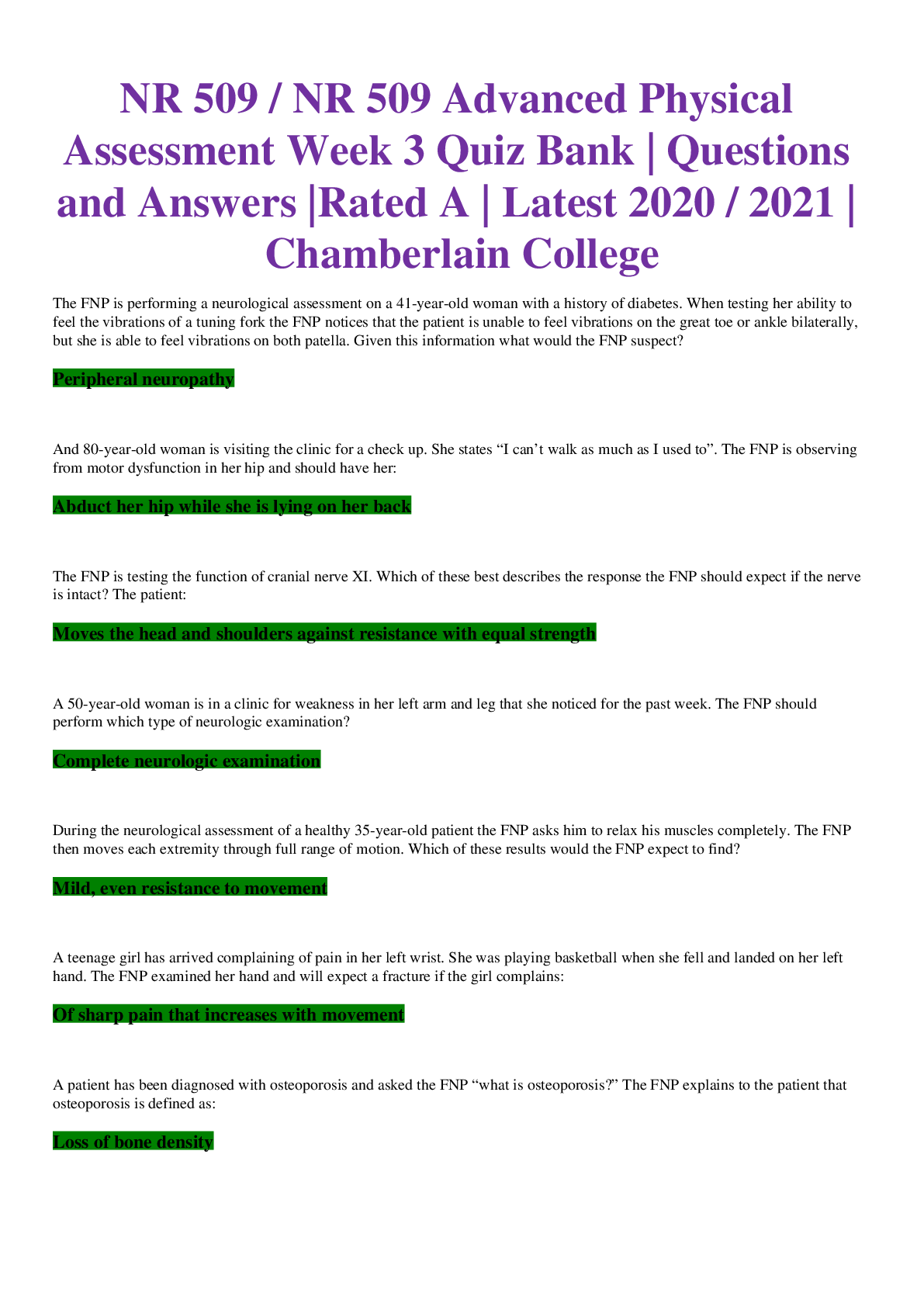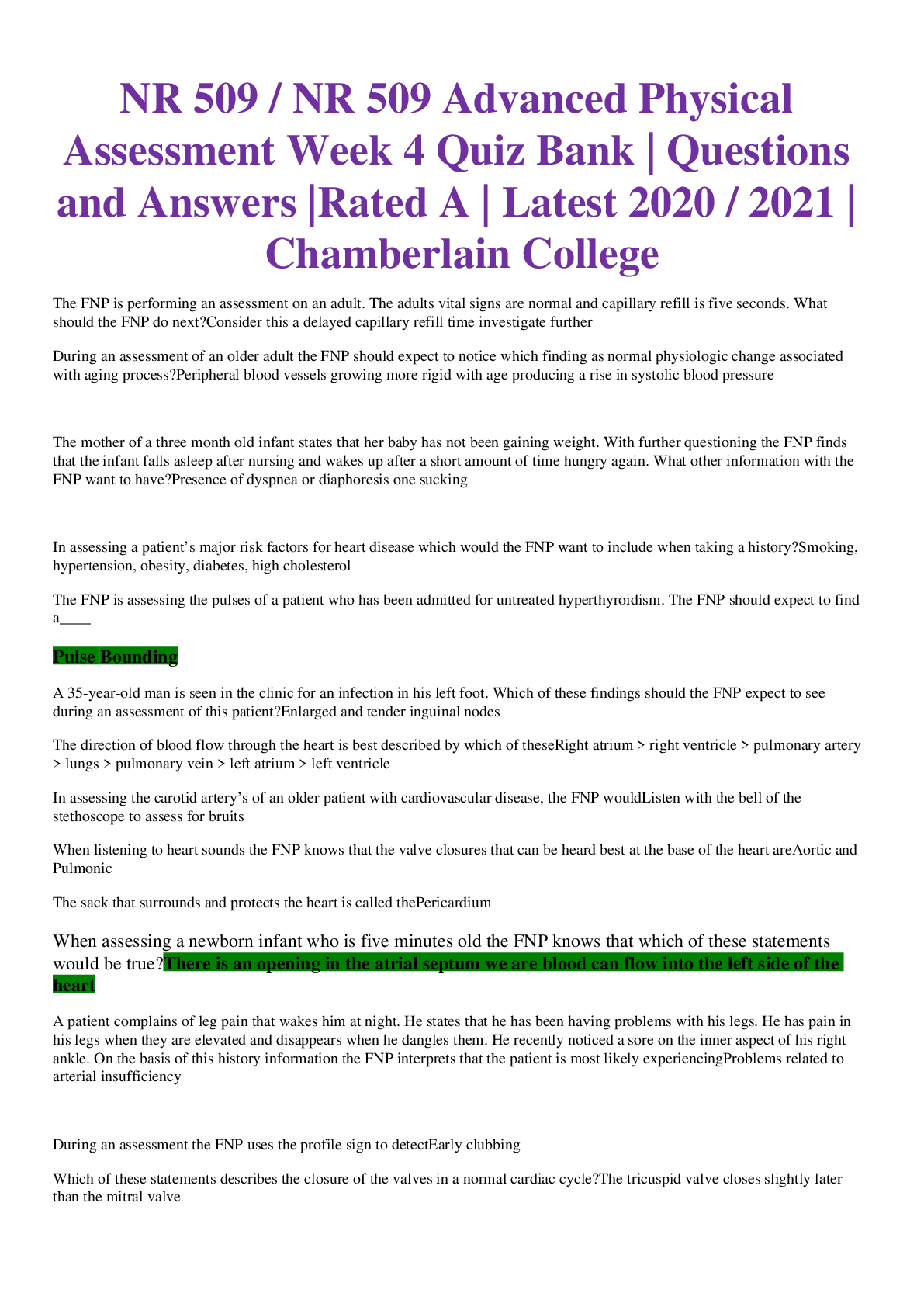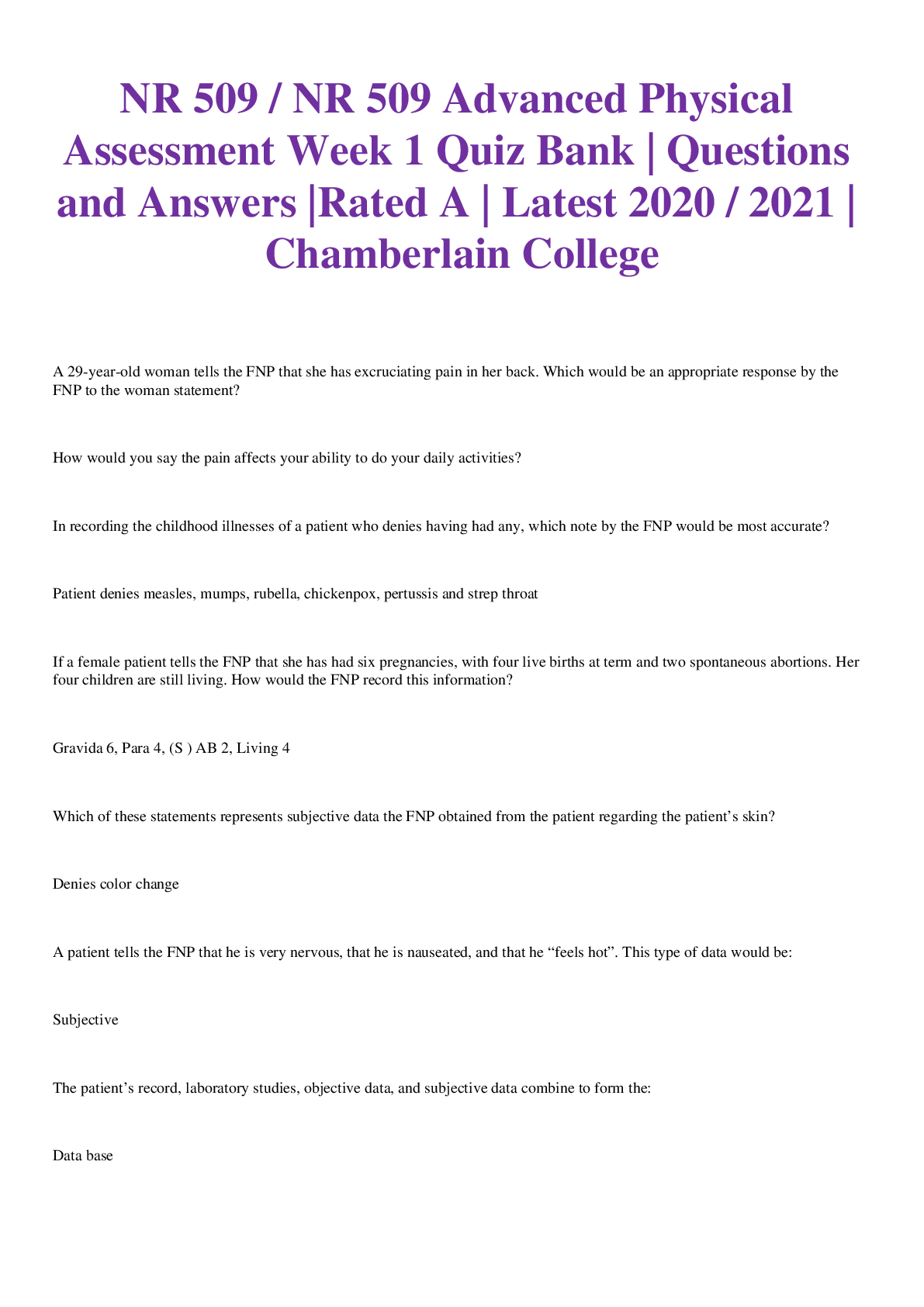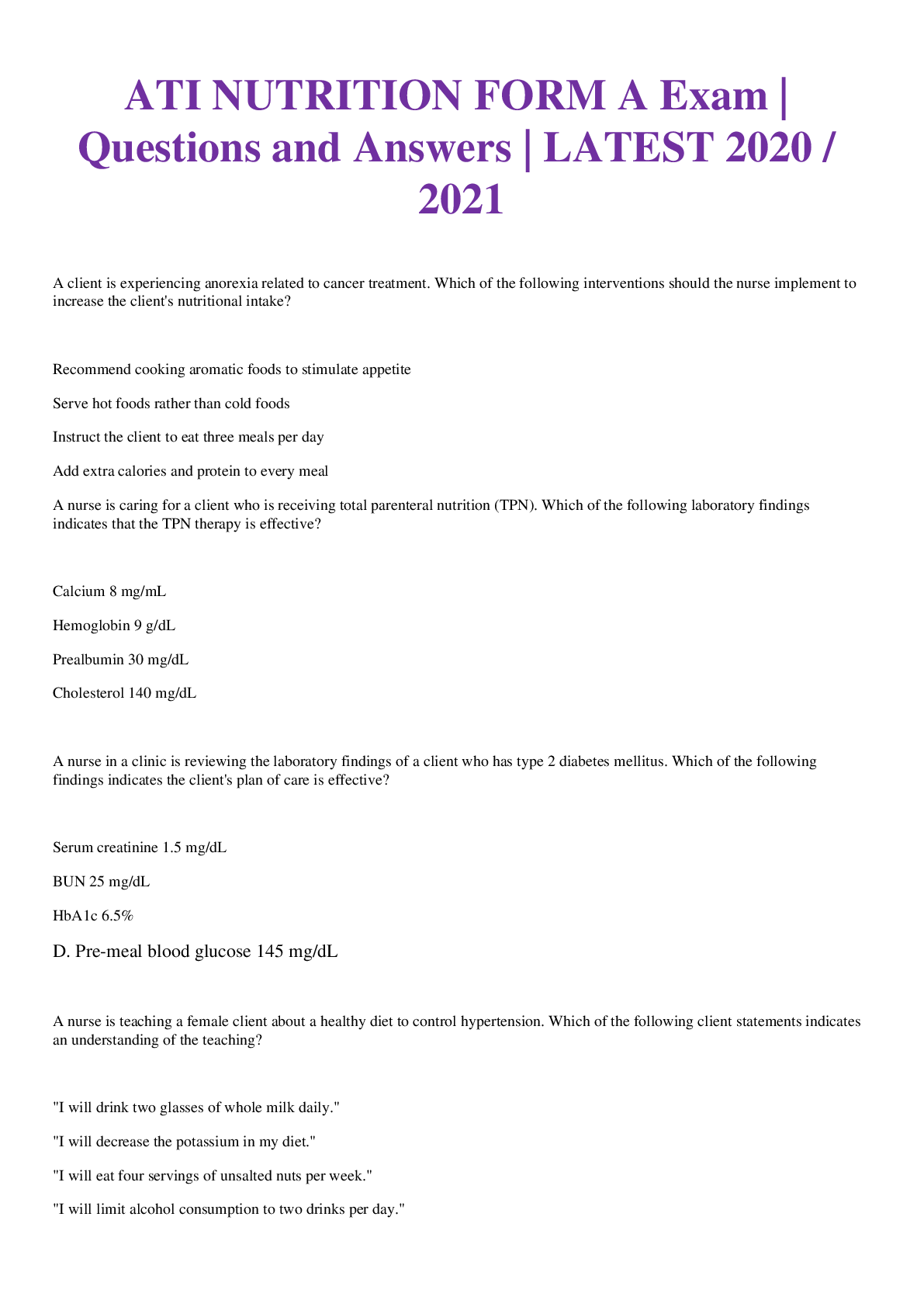*NURSING > EXAM > NRNP 6566 / NRNP6566 Advanced Care of Adults in Acute Settings I Week 11 Knowledge Check | Questions (All)
NRNP 6566 / NRNP6566 Advanced Care of Adults in Acute Settings I Week 11 Knowledge Check | Questions and Verified Answers | Latest 2020 / 2021
Document Content and Description Below
NRNP 6566 / NRNP6566 Advanced Care of Adults in Acute Settings I Week 11 Knowledge Check | Questions and Verified Answers | Latest 2020 / 2021 • Question 1 A 56 year old male with an acute... COPD exacerbation is admitted to the ICU. He has type I diabetes and utilizes NPR and regular insulin twice a day to manage his diabetes. He is currently taking very little orally due to his shortness of breath. What would the best way to manage his diabetes and insulin needs in the ICU? Correct Answer: According to the American Diabetes Association (2019) guideline, basal long acting insulin should be administered once a day. Point of care blood glucose testing should be completed at least four times a day with sliding scale insulin coverage. The stress of illness will require the need for insulin but the evolution of the patients condition, varying oral intake, and medications will cause variations in the patients blood glucose. Point of care testing with sliding scale coverage along with basal insulin is the most flexible method to meet the patients insulin needs while in the ICU. • Question 2 A 56 year old male with an acute COPD exacerbation is admitted to the ICU. He has type I diabetes and utilizes NPR and regular insulin twice a day to manage his diabetes. He is currently taking very little orally due to his shortness of breath. What is the blood glucose goal for this patient in the ICU? Correct Answer: According to the American Diabetes Association (2019) guideline, pre-prandial blood glucose control of less than 126 is the goal. Post prandial no greater than 180. Hyperglycemia is associated with poor outcomes especially in critical illness. According to the NICE-SUGAR study, patients with goals lower than this (considered intensive insulin therapy) had increased mortality. • Question 3 Juan is a 42 year old male with complaints of nausea and vomiting for 3 days and has been unable to keep anything down in that time. He has not taken any of his medications due to the nausea and vomiting. Your assessment reveals the following data: Significant History Type 2 DM x 4 years, HTN Medications Lisinopril 10 mg daily Metformin 1000 mg po daily Glipizide 5 mg po daily Physical Exam Pale, lethargic gentleman Skin is very dry VS 94/64 P 112 RR 30 T 99.4 wt 195 pounds ht 5’11 » Lungs clear bilaterally, rapid respiration CV : RRR, no murmurs or gallops Abd: soft, non-tender, positive bowel sounds Labs: Hb 146 Hct 58% Cr 4.9 Bun 53 Cholesterol 238 Na 126 K 5.6 CL 95 Ca 8.8 Gluc 722 Phosphorus 5.8 Ketone Moderate AST 248 Alk Phos 132 ABG’s ph 7.01 Pco2 20 Po2 100 Sat 98% (on room air) HCO3 7.5 What patient education would be important to provided related to sick day management of his diabetes (include management of insulin) ? [Show More]
Last updated: 1 month ago
Preview 1 out of 5 pages
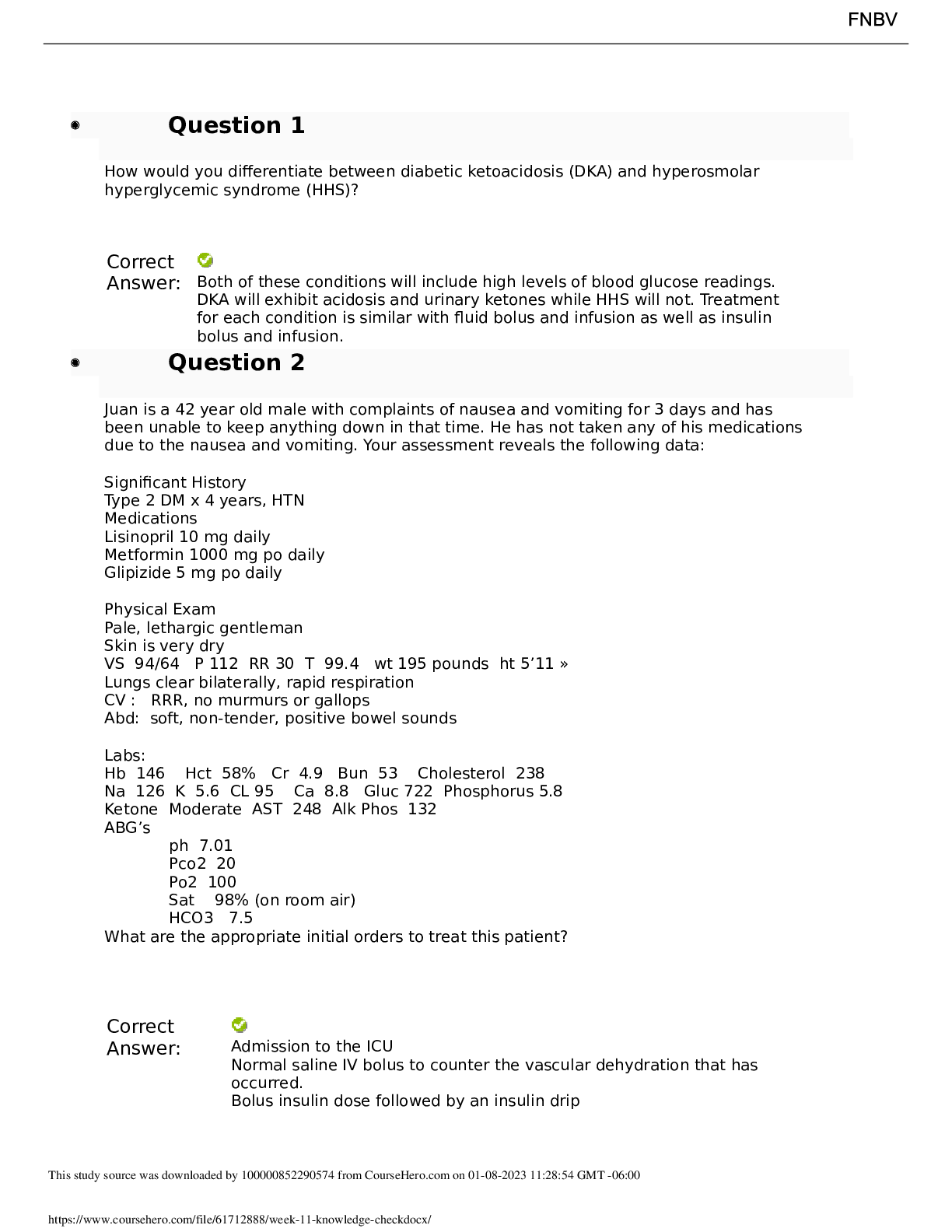
Reviews( 0 )
Document information
Connected school, study & course
About the document
Uploaded On
Dec 22, 2020
Number of pages
5
Written in
Additional information
This document has been written for:
Uploaded
Dec 22, 2020
Downloads
0
Views
98

